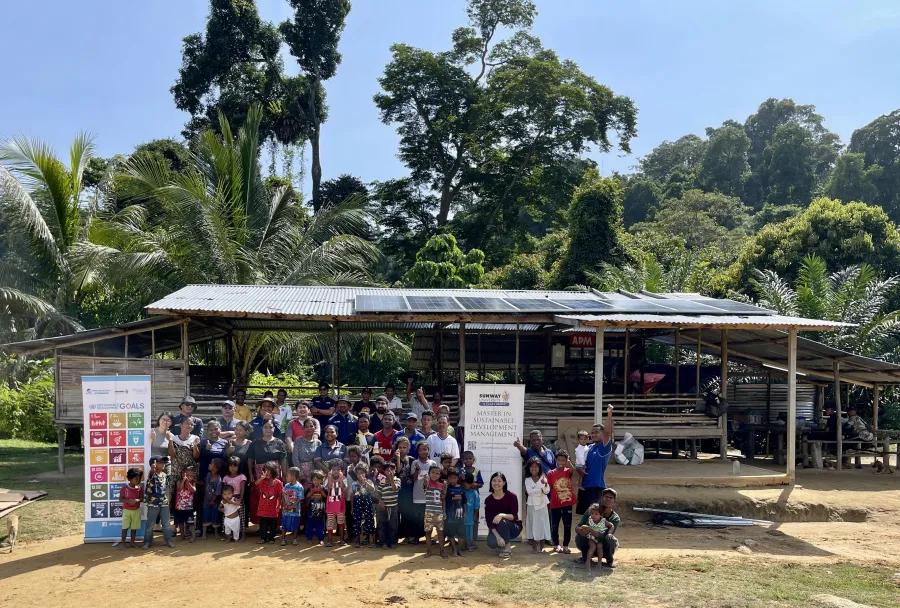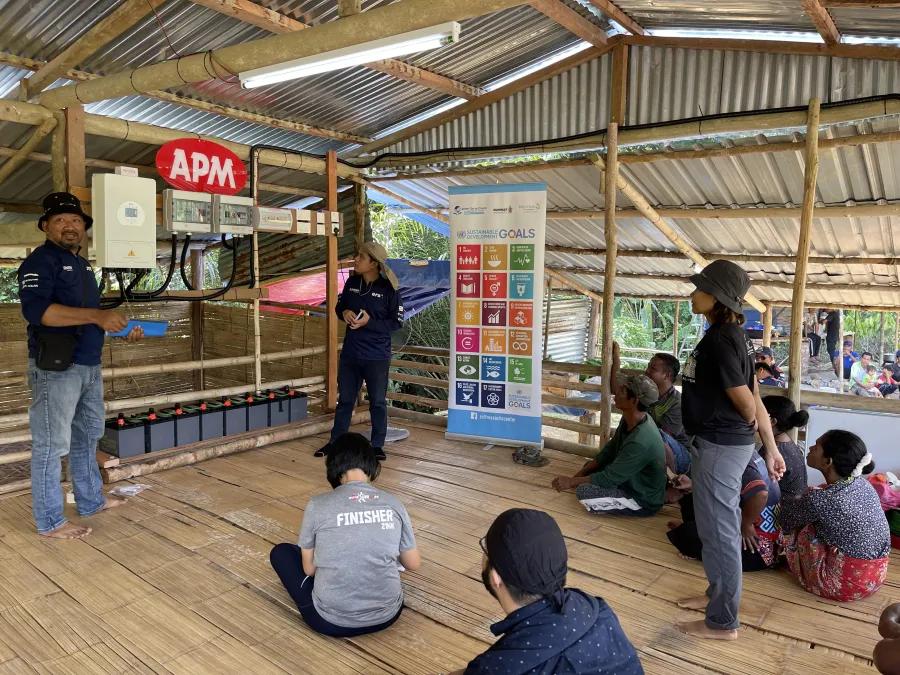(Em)Powering the 1%
With an electricity access rate of 99%, Malaysia is one of the most grid-connected countries in the world. However, there remain a significant number of communities without the benefit of grid connection. The Orang Asli, or indigenous people, are among those most affected by this.
This rural electrification project aims to empower communities by providing a sustainable and inclusive energy solution aligned with SDG 7 - affordable and clean energy. The project harnesses the collective expertise, resources, and passion of the participating organisations to bridge the energy gap in remote areas. This includes Sunway University and the Centre of Orang Asli Concerns (COAC), with sponsorship from APM Corporate Services Sdn Bhd.
By actively engaging with the local community, the project aims to foster ownership, capacity building, and long-term sustainability, ensuring that the benefits of electrification continue to thrive even after the project's completion. This project is also a follow-up to an earlier rural electrification project sponsored by Toshiba Corporation in participation with Professor Kensuke Yamaguchi and his student from the University of Tokyo.
The proposed village, Kampung Cunex, located 29km from Gerik, Perak, is a small but vibrant community of 104 Temiar villagers living within the rainforest. With 24 households, their livelihoods revolve around agriculture and handicrafts. The village has limited accessibility. Reaching it requires 4x4 vehicles to manoeuvre the rough 22km estate road and 7km offroad from the nearest Gerik town.
The village has a school for its kids, providing early education in their learning centre. This is powered by an existing small-capacity rooftop solar PV system. This project aims to provide a larger solar power capacity to the community hall, Balai Adat, enabling a broader range of applications and meeting the growing energy demands of the community.

Providing power to a rural community involves careful planning, implementation, and consistent maintenance. The crucial first step was understanding their energy requirements, existing infrastructure, and the specific challenges they faced regarding power access. The sustainable energy solution proposed for this project was a solar PV with a battery storage system. The rooftop PV system consists of 8 panels of polycrystalline PV modules with a capacity of 370Wp per panel, providing a total power of 2.95kWp. The system is expected to generate 10.09kWh per day, catering to the daily demand of the community.
This is complemented with a battery energy storage system (BESS) to ensure reliable power, even during cloudy days, which can store one day’s worth of backup power. The battery energy storage system (BESS) comprised an eight-nos-sealed lead acid battery with a capacity of 6.5kWh 6V 226AH. After installing the system, PV contractors conducted training sessions to guide community members on maintaining and operating the power systems. This helps to empower the community to take ownership of the project and foster a sense of responsibility for the project’s sustainability.

Electrification with reliable and sustainable energy sources is essential for improving the Orang Asli’s welfare and education system. Electricity enables the use of modern appliances, such as TVs, lights and fans, which improve comfort and overall well-being. Education will also be enhanced with solar energy. For example, students can revise at night conveniently with reliable lighting.
In addition, providing electricity to rural communities ensures that everyone has access to essential services and opportunities, reducing the urban-rural energy divide and promoting social equity. Solar energy reduces the need for traditional energy sources like coal, diesel or firewood, which are significant contributors to air pollution and indoor air quality issues. Additionally, transitioning to solar power promotes cleaner air and better health outcomes for rural inhabitants.
Rural electrification through solar and other sustainable energy sources is crucial for fostering inclusive development, improving livelihoods, and creating a more equitable and sustainable future for rural communities. This journey is driven by a shared vision - to create lasting change, one village at a time. The commitment to sustainable energy solutions goes beyond powering homes; it empowers hearts and illuminates lives, paving the way for prosperity and a brighter tomorrow.
Professor Ts. Yap Kian Meng
School of Engineering and Technology
Email: @email
Professor Fun Woh Peng
Jeffrey Sachs Center on Sustainable Development
Email: @email



